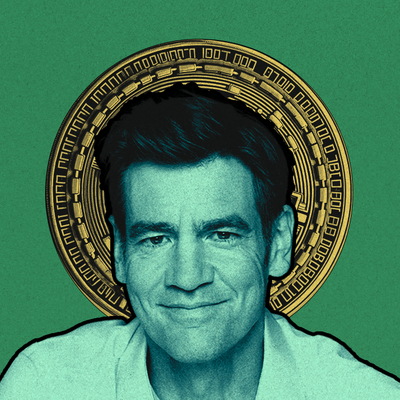
Sponsored By: Prequel
This essay is brought to you by Prequel’s Creators Bootcamp, where teens learn how to build a social media following and use it to create a world-class network.
1
If you ask a regular person what a tree is, they’ll give you a different answer than a biologist will.
Regular people can tell you that trees are big, tall plants with lots of leafy branches. This is accurate enough for everyday usage. But a biologist will tell you that “tree” is not actually a real taxonomic group—many genetically distant species of plants independently evolved into similar shapes. If you wanted to find a common ancestor between a pine tree and a maple, you’d have to go back millions of years and widen the family group to include thousands of species that are definitely not trees. To a biologist, trees are simply plants with cellular mechanisms that grow thick main stems capable of bearing significant weight and height, which enables them to successfully compete for sunlight.
Similarly, you can define “business” in a common or technical sense. Regular people can tell you that a business is an organization that makes money by selling things. But we can go much deeper than that. And it is useful to go deeper, because it helps us understand not just the nature of businesses, but of all economic behavior and wealth creation. To the extent we understand these things, we can have more control over them, and increase our odds of success. Definitions determine destiny. The more clearly we can articulate what a business is supposed to do, the more clearly we can see how it should function and accomplish our goals. I've often seen founders get distracted and expand the scope of their business until it dies. We don’t want that!
But, more importantly, learning how things work is just inherently interesting :)
Traditional networking is dying. Remote work and the scale of the internet mean that the networks of tomorrow are being built on social media. Prequel’s Creator Bootcamp teaches teens how to build and scale a social media audience from scratch and how to leverage it to access exponential opportunities.
The bootcamp is developed in partnership with world class creators with millions of followers combined across all major social media platforms—from LinkedIn to Instagram.
Prequel shows middle and high school students how to create content with career goals in mind and start building reputation and authority online so that they can create their first revenue stream, access coveted job opportunities, and find top-tier mentors.
2
If you want to understand the nature of something, it helps to go back to when it originally emerged to understand why. So here’s a passage from The Origin of Wealth that tells the story of the very first business:
“About 2.5 million years ago, Homo habilis began to use its relatively large brain to begin making crude stone tools. We can think of these stone tools as the first products, and we can imagine that at some point two of our hominid ancestors, probably from the same band of close relatives, sat in the dust of the savanna and traded tools. We will use this very approximate point of 2.5 million years ago as the market for the beginning of the human ‘economy’.”
Of course we can’t know for sure if any of our pre-human ancestors actually set up shop and formally specialized in making these stone tools to trade for food or other resources. But we do know that they had an incentive to trade. When one person focuses on making tools, and another person focuses on using those tools to hunt, they will collectively outperform a group of “jack of all trades master of none.”
Once an economy learns a new trade, more trades become apparent. (I mean this both in the general sense of “trade” as a type of transaction, and the more specific sense of “trade” as a profession.) After the first toolmaker succeeds, someone else tries to make a different type of stone tool. Then a third person develops a knack for finding good rocks and bringing them back to camp for the two tool makers—the first raw materials supplier! And the complexity just keeps growing from there.
Technology is like a ratchet for complexity. It’s hard to go back to simpler times. But there’s good news: wealth increases proportionally with economic complexity.
Take, for example, cars. As they gained popularity there was demand for more smoothly paved roads, which led to the invention of asphalt. Fast food and motels became a thing, because people wanted to dine and sleep somewhere recognizable when they were on the road. Auto repair shops sprung up, highway sign printers, windshield wiper blade manufacturers, etc. You get the idea! All of these new things make the economy more complex, and made our lives better in many ways (though perhaps worse in some), while generating money for the business creators.
Now that we understand this fundamental dynamic, we can see what a business truly is: the atomic unit of economic complexity.
3
For most of pre-human history, our level of complexity in specialization and trade remained stable. Most tribes figured out some basic operating procedures, and had little reason to shake it up. But then homo sapiens emerged, with superior language and memory skills, and exponentially compounding complexity was unlocked.
Some scholars believe our language and memory skills enabled better social record keeping of debts, which created an incentive to gather a bunch of surplus food and give it to people in your tribe so everybody would owe you. With that incentive in place, now there was a reason to get efficient at gathering a lot of extra food, which created a reason to have better technology.
At that point, complexity ballooned. We created priests, farmers, artists, warriors, nannies, chefs, and all sorts of specialized trades. The more specialized and complex the tribe was, the bigger it could grow. And the bigger the tribe, the easier it was to grow new complexity, since so many specializations depend on economies of scale to make sense. Fascinatingly, there is a strong argument that this tendency to specialize and trade is a major reason why we survived and drove other pre-human species like the Neanderthals to extinction. Markets created us, just as much as we created markets.
Since that time, the economic web has grown vastly more complex. We’re no longer trading simple stone tools for food with the people we live with, we’re trading niche labor for money, and using money to buy almost everything we need to live. The economic activity required to support our lives is unimaginably vast.
Walter Lippmann described this perfectly in a 1936 edition of The Atlantic:
“The thinker, as he sits in his study drawing his plans for the direction of society, will do no thinking if his breakfast has not been produced for him by a social process which is beyond his detailed comprehension. He knows that his breakfast depends upon workers on the coffee plantations of Brazil, the citrus groves of Florida, the sugar fields of Cuba, the wheat farms of the Dakotas, the dairies of New York; that it has been assembled by ships, railroads, and trucks, has been cooked with coal from Pennsylvania in utensils made of aluminum, china, steel, and glass. But the intricacy of one breakfast, if every process that brought it to the table had deliberately to be planned, would be beyond the understanding of any mind. Only because he can count upon an infinitely complex system of working routines can a man eat his breakfast and then think about a new social order.”
Since that was written the economy has grown from ~$7 trillion (in today’s dollars) to around $100 trillion. It raises the question: why does this keep happening? And what does it say about the nature of businesses?
4
Evolutionary systems need three things to function:
- A way to generate new things
- An environment in which those things can succeed or fail
- A way for successful things to spawn new imperfect copies of themselves
The economy has all these properties.
It is not a metaphor to think of the products and technologies we use as having “evolved”—it is literally true. As economist Eric Beinhocker puts it: “Evolution can perform its tricks not just in the ‘substrate’ of DNA, but in any system that has the right information-processing and information-storage characteristics. [...] The universal algorithm of evolution is literally and specifically implemented in the information-processing substrate of human economic activity.”
Now we can really understand what a business is.
A business is a pattern of economic activity that is stable through time. The pattern of activity is the DNA of the business. This is what I am talking about when I talk about “strategy”. It’s the activities the business chooses to do. (This is also Harvard strategy legend Michael Porter’s definition.)
New patterns emerge when people try to do a new collection of activities to see if it pays off. This is entrepreneurship. When it works, it changes other economic patterns of activity and opens up space for new patterns to build upon it.
Patterns aren’t born spontaneously. They have a heritage. They branch off from an already existing pattern, and give it a twist.
- “We’re a photo sharing network, but you can only share once a day.” (BeReal)
- “We’re a podcast app, but everyone listens live and can be invited to speak.” (Clubhouse)
- “We’re a computer, but strapped to your eyeballs” (Oculus)
- “We’re a payments processor, but for web developers” (Stripe)
A lot of times people feel ashamed if their idea is seen to be obviously derivative, but they shouldn’t. Everything is derivative. And being obviously derivative gives you the advantage of being easy to understand, which is a prerequisite to being interesting.
When a new business works, it becomes the foundation for future businesses in a few ways:
- Upstream: As the new business grows, it runs into new needs that can be served by new types of suppliers. For example, computer hardware companies created the opportunity for software specialists. Software companies created the opportunity for coding bootcamps, etc.
- Downstream: As people use the new technology, it alters their behavior in ways that create opportunities for complements (e.g. cars leading to fast food).
- Parallel: When a new business works in one domain, it implies similar businesses might work in other domains. This is why a breakout success is often followed by imitators with a slight twist.
All this causes complexity of specialization and trade to just keep growing.
5
This might be interesting philosophically, but what does it mean for operators? I think there are a couple practical take-aways:
First, be wary of too much original thinking. The economy evolves through heredity, and it’s important to be very clear about what is different about what you’re trying and to minimize any other new element so that you can get a clean test. We are generally not as smart as it feels like we are.
Second, if you can, just throw a bunch of stuff at the wall. Don’t worry too much about making one perfect idea—make a lot of ideas and see what happens. Then make more. The cost of failure is generally lower than you think, and it can be reduced even further when you are light and loose with your experiments. Craft and perfection are achieved through repetition and repetition alone. Don’t be stingy.
Third, if businesses are fundamentally just new atomic units of economic specialization, then you damn well better be specialized! The most common mistake in the world is to try to be too broad because it’s what seems grandiose. Actual grand things started out as weird, niche things. Apple once made computer kits for electrical engineering nerds in the Palo Alto area. If you can survive you can expand. But you have to get a toehold first.
Fourth, think hard about what new patterns your business branches off from. Generally, the more important the new pattern you identify, the more important your branch off of it will be. Microsoft and Apple identified “computing.” Google, Amazon, and Facebook identified “the web.” What pattern changes that are happening now do you think will be big?
(If I had to name the one we’re betting on at Every, it’s a new culture of work for a new type of human organization that is native to the internet. New cultures require new ways of thinking, and new ways of thinking are best amplified by new publications.)
Fifth, if a business is an atomic unit of economic complexity, then the activities the business performs are like the protons, neutrons, and electrons arranged inside it. Change the way those are arranged, and you change the nature of the atom. Become obsessed with what you do and what you don’t do. There is nothing more fundamental to strategy than activity selection.
Sixth, at the risk of going too far with the metaphor, I’d like to take it one step further: if a business is an atom and an activity is a particle, then an industry is a molecule. Certain atoms are more important than others, and that’s because of the position in the structure they occupy. There are patterns that dictate which positions are likely to come with strength and which aren’t. I wrote about it here.
Finally, seventh, just have fun with it! It doesn’t help to be uptight or afraid. You sit on top of an incomprehensibly large mountain of human knowledge and labor. Think of all the work that went into the chair you’re sitting in, the clothes on your body, the screen you are reading this on. Think of all the hardware and software and raw materials that had to be excavated, all the machines that had to be created and shipped to factories just to assemble a sub-sub-component of the device you’re reading this on right now. It’s a beautiful thing, the economy. Dance with it.
Find Out What
Comes Next in Tech.
Start your free trial.
New ideas to help you build the future—in your inbox, every day. Trusted by over 75,000 readers.
SubscribeAlready have an account? Sign in
What's included?
-
Unlimited access to our daily essays by Dan Shipper, Evan Armstrong, and a roster of the best tech writers on the internet
-
Full access to an archive of hundreds of in-depth articles
-
-
Priority access and subscriber-only discounts to courses, events, and more
-
Ad-free experience
-
Access to our Discord community
Thanks to our Sponsor: Prequel
Prequel’s Creator Bootcamp is the way for teens to learn how to build, scale and monetize an online audience. Help your kids turn their social media time into a productive business endeavor.


Comments
Don't have an account? Sign up!